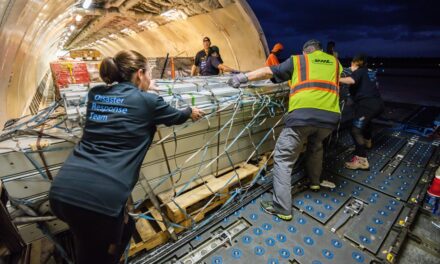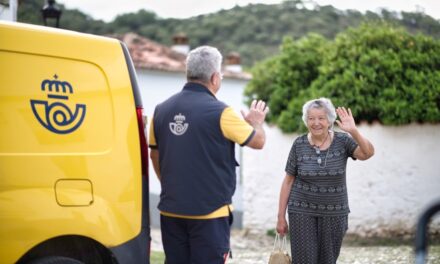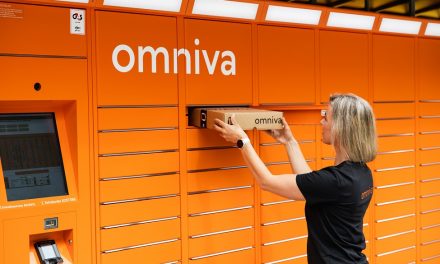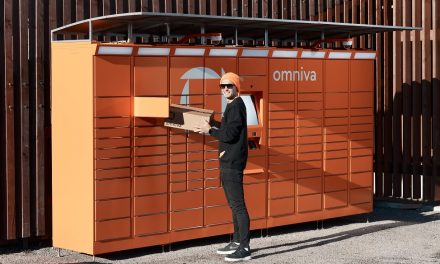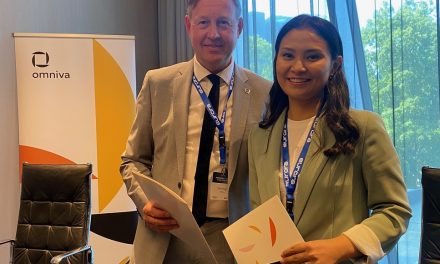
Omniva: No stone must be left unturned
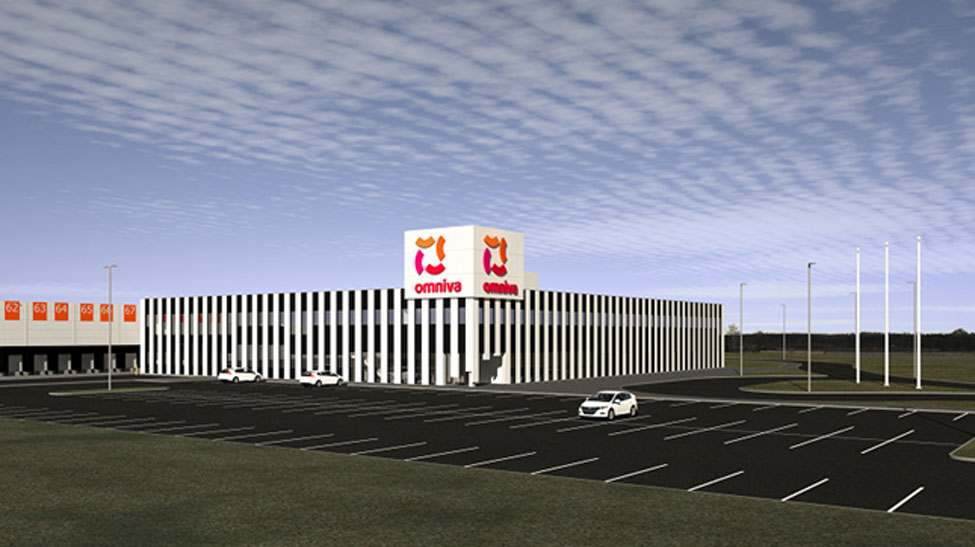
We interviewed Sven Kukemelk, who is the Head of Omniva‘s International Business and found out how they have expanded their business, what are their ambitious plans for the near future and how the war has impacted their business.
 Omniva is an international company. What has motivated you to push your boundaries?
Omniva is an international company. What has motivated you to push your boundaries?
Omniva was relatively active in international business until 2015. It was then decided to materialise this activity under the Post11 joint venture with SF Express, China’s largest e-commerce partner and logistics company. For a number of reasons, this turned out to be a very complex process, which resulted in losses for Eesti Post (formerly Omniva). 2019 ended with a big loss, which was huge news for small Estonia, but it went unnoticed at the global level. However, we must learn from our mistakes and turn our weaknesses into strengths. I’ve always been the kind of person who finds opportunities in impossible situations, and that’s how I was invited to join Omniva and make this international business work. It has been an extremely interesting challenge. The good thing was that we were able to start building it from scratch. The result is that at the end of last year we transitioned from a loss to a healthy profit.
What were the steps that took you from loss to profit?
No stone must be left unturned. You have to look under every stone, not once, but rather two or three more times. It’s a methodical exercise and requires sheer perseverance to understand what is really going on and where the stumbling blocks are. You need to understand what the customer’s real needs are and upgrade them. We reviewed all our partner contracts and improved them, terminated the ones that were not competitive, and abandoned products for which we could not see a future and focused on the ones that do have a future.
Which products didn’t have a future in your opinion?
Historically, Eesti Post had a very strong focus on unregistered service – these are parcels that cannot be tracked. A parcel like this goes into the addressee’s mailbox, but when it disappears, no one knows where it is. The reason is that the postman doesn’t register its delivery. It’s a substandard product, because it cannot be controlled and doesn’t give the customer an overview of where their parcel is. It’s also very difficult to put a price on because there is a very complex international pricing algorithm between postal services behind this. We competed to see who could offer the cheapest price. This service can be offered by any postal service in the world and there is no competitive advantage for us here.
All in all, it’s inherently difficult to price such a product fairly because it’s also linked to exchange rate fluctuations. It’s also impossible to guarantee a specific quality and the margin is very small, even if there seems to be enough volume. This was not where we wanted to go.
Does Omniva no longer deliver such unregistered parcels?
Yes, we deliver them, because we focus on what the customer wants, but it’s not our core product, so we don’t proactively offer it to our partners.
Is the postal service solely a public service worldwide or does the private sector also offer competition to the state?
There are in fact a large number of private companies in this market, many of which are listed on the stock exchange. However, there’s a pretty big difference between public and private service providers, for example a large number of public post offices don’t take timeliness responsibility for registered and tracked mail either. For example, if a parcel that I send out today arrives in England in five months and 30 days, it’s a parcel that has been delivered on time according to the regulations between postal service providers and cannot be contested. A service like this doesn’t allow us to give the consumers the reassurance they expect. We, on the other hand, said outright that it made no difference to us whether the partner was a national postal service or a commercial partner, our aim was to find competitive partners. If the local postal service wasn’t willing to provide a service that would ensure, for example, that a parcel could be delivered within five days and that it would be materially responsible for the delivery, we turned to commercial partners. Today, more than half of our network are commercial partners, because quality and speed are considerably more important to us.
What markets are you active in today, what services do you offer?
Our core business comes from third countries: China, UK, USA, which we then take to Central Asia, Caucasus and Eastern Europe.
We offer delivery of small (up to 5 kg) and large (up to 30 kg) parcels, courier services, plus customs and logistics services. The latter means that if there’s a need to take something to Moldova, we have a truck that goes there three times a week and can take the parcels. But that’s not our core business.
It’s also possible to get customs clearance through us for IOSS parcels sent to the entire territory of the European Union. Clients can bring the volume to us, we take care of the customs procedures and return the released volume to them and the client will carry on by themselves.
What are your ambitious plans for the near future?
For regular Joe, the Baltic States seem like a pretty big and ambitious place to do business. Unfortunately for big corporations like Amazon, eBay or Rakuten, we’re a tiny part of the whole system. This is also one of the reasons why they’re not willing to invest their precious IT resources, their time, ca 2-3 months of testing and energy in something where they see minimal purchasing power. At the same time, a person in Estonia, Latvia and Lithuania would also like to be part of a global e-commerce network, so that the shipping costs remain within reasonable limits. So here’s our ambitious plan to make the boundaries wide enough so that we can connect to these big platforms. The whole managed region and its economy would win.
For AliExpress, we’re now the number one service provider in our region and Central Asia. We had the capacity to offer them a number of countries, largely because we didn’t have to deal with letters as much as other postal services, because the letter business in Estonia was already a marginal business thanks to e-invoices and digital documents.
Our ambition is to be bigger than just the Baltics and that’s why we do business internationally today.
How do parcels from Amazon or Ebay arrive to Baltics today?
When ordering from the US, the parcel is first handed over to DHL. DHL will deliver it to Germany. DHL has signed a contract with the Finnish company Itella and the parcel is sent to Finland by Finnish Post and then delivered to the Baltics. This is, of course, a long and costly journey. For example, if a person orders a pair of flip-flops from Amazon’s platform that cost $40 and wants them to be delivered to Kazakhstan, the delivery cost can be ca $70. That’s why we’re working to make sure that big companies like Amazon or eBay don’t just look at Estonia or the Baltics, but see that we’re a region of 300 million people. They’re focused on big markets like the US, so it’s up to us to prove to them that we can offer a competitive and affordable service that will enable them to sell many times more. We have the capacity to unlock this market and we’re working on it every day. Goods would probably not be as expensive anymore as they are today in the Baltic States when compared to many larger countries such as Spain, France or Italy.
Time also plays a role. If someone orders a product from iHerb today, it’ll take weeks for the goods to arrive from across the ocean because of the consolidators. They wait until there are enough goods to fill an aircraft container and only then is it sent on its way to Amsterdam. There are also two partners in Amsterdam who share the goods, one of which comes to the Baltic States and Finland. This is where we have the capacity to take a few links out of the chain and make this delivery two weeks shorter as well as cheaper.
We have our own hubs in America: New York, Miami and Los Angeles. Also in London, Amsterdam, Helsinki, Kaunas, Tallinn, Bishkek, Muscat and Hachenburg in Germany. We offer air transport, pick up the goods from New York and deliver them. We offer a complete solution – we receive, we take care of customs and we deliver all the way.
In your opinion, is there still a lot of untapped potential in e-commerce that Omniva wants to conquer with its knowledge and skills?
Exactly! Our aim is for large corporations to see our markets with potential. Take Uzbekistan, for example. In 2014, there were ca10,000 credit card holders in the country. It’s home to 35 million people, basically a country the size of Poland. As of last year, there were 10 million credit cards in that country. It’s obvious that there’s a large number of people with purchasing power there today, but Amazon and eBay don’t even allow them to place orders, or if they are allowed to do it, the price is unreasonably high.
Central Asian countries really want to cut themselves off from Russia. They also want to distance themselves at national level, but they have no alternatives. Local postal service providers come to us for help. So far, we’re the only ones who’ve shown interest in them. We offer good services and normal delivery times. Our task is to show that we offer unique knowledge in this region and that we have the capacity to apply it.
What are the main risks involved?
The more consignments, the higher the risks. Like, if a consignment is stolen or something catches fire. When the war in Ukraine started, we had a number of parcels in transit to Moldova at Kyiv Boryspil airport. We had to write them off, understandably, it was force majeure.
What are the main target markets you’re about to reach in the near future?
Our focus is aimed strongly at the US and UK at the moment. This is the market in which we’ve invested and made our hubs, found partners and so on.
Who are Omniva’s dream customers at the global level? Why should they consider cooperation with Omniva?
My ideal is that one day, we’ll have direct interfaces with Amazon, eBay and Rakuten. There are currently four major e-commerce platforms in the world – Amazon, eBay, AliExpress and Rakuten. One of them – AliExpress – is a partner of ours for already more than 6 years and we’re now working on getting the other three as well.
Where do you see Omniva’s international business in five years’ time?
Last year, before the war, our turnover was 35 million. We’re aiming to increase our turnover to €100 million by 2026, which means our goal is to triple our volumes. Next year we should reach a turnover of just over 40 million, which is still entirely feasible at this stage. Speaking of setbacks, we obviously lost the Ukrainian market, but that market is now slowly recovering.
Also, our fourth largest market was Belarus – we were the only ones able to offer commercial services there. We closed it for obvious reasons. Since most of our logistics from the Baltics to Central Asia and the Caucasus went through Ukraine, because there were many flights from Ukraine to these regions, the war made this logistics chain much longer and more expensive. For example, our main hub is in Kaunas. Our truck’s journey from Kaunas to Moldova grew by 1200 kilometres as we now have to drive around Ukraine. Before, we went from Kaunas through Poland to Ukraine, it was two borders. Now we drive from Kaunas to Poland, from Poland to Slovakia, from Slovakia to Hungary, from Hungary to Romania, from Romania to Moldova. This war caused us a lot of challenges and disruptions..
However, the good news is that our partner is able to deliver parcels to some of the larger cities, except in the occupied territories. But there are still problems in smaller towns, for example, most of the people who used to deliver parcels were men, and they’re now on the front. Secondly, the state nationalised most transport companies so it could use the vehicles to transport soldiers, i.e. commercial vehicles have been largely confiscated by the state. Of course, we must understand this, but it also means that it’s very difficult for our partners to physically deliver parcels because they don’t have the people or the vehicles.
The three main things that have changed in e-commerce in the last three years?
In 2008, all postal service providers agreed that prices will be increased every year. 2008 was also the year when e-commerce started to grow. It’s relatively cheap to deliver a letter, as you can fit quite a lot of letters in a postman’s bag. The cost of delivering a letter was ca20 cents. According to the UPU standard, this letter could weigh up to two kilos. AliExpress and Amazon started taking advantage of this, as it allowed them to send small parcels for as little as 20 cents. That was the reason for the decision to raise prices by 10% every year to make this service competitive.
We’ve reached a point where the price of an unregistered parcel in postal network is at the same level as that of a registered one in commercial. This means that the postal service is no longer competitive today – the price is the same, the quality is significantly lower.
The European Union simplified its customs rules as of 1 July 2021. Until then, customs procedures had to be carried out in the territory of each Member State, which provided a significant advantage to the local postal operator in handling the goods to be cleared, but now all customs procedures for all Member States can be carried out in one place.
This meant that goods that were previously subject to customs procedures are now free market goods and whoever offers the cheapest price can deliver the parcel. Of course, this only applies to parcels costing less than €150. We hope to see at some point simplification of process for also above 150€ items.
Omniva has benefited greatly from this change and was one of the first among the suppliers of, for example, Aliexpress to implement this exemption. This has also increased the volumes in our network.
What are the global trends in postal services?
There are basically three processes:
- Getting closer to the customer. Instead of having a single warehouse, more warehouses are being built so that they are no longer huge. They are medium-sized and allow the service providers to be close to the customer. Today we have warehouses in the Netherlands, London, Germany, Kaunas and Lithuania. Also in Estonia, Finland, three in the US, Kyrgyzstan and Oman. In order to be able to consolidate this volume into a small area, i.e. to offer faster service and cost efficiency.
- Consolidation, i.e. being able to consolidate goods bought from different merchants into a single parcel, which obviously reduces costs. This is known as ‘smart consolidation’.
- Giving the customer a choice. Whilst there was one delivery solution in the past, there are now mainly four to five different solutions to choose from for AliExpress, Amazon, eBay. For example, how quickly would you like to receive the goods. Will they be sent to a parcel terminal or an office, whether the parcel is registered or not. The trend is for the customer to choose the delivery solution, rather than the e-shop doing it for them.
You’re a fairly new manager at Omniva, what motivates you personally to do this job?
I’ve been in this job for two and a half years. Before that, I spent more than a decade in various management positions in aviation, a highly competitive and tough business where you fight for pennies.
Changing a lot of stigmas, that things don’t have to be the way they’ve been for 40 years, that motivates me every day. I like change and challenges.
I hope we can go against the flow, that we can stand out, that we can value Estonian capital and keep our brainy people here. Tallink is a good example here.
My goal is to recruit the best. If I can’t find local expertise, we bring it in so we can grow and expand as a business.
So what is your superpower, Sven?
I won’t take no for an answer! I don’t give up until I get what I want. I also like to find non-conventional solutions and do things differently. For example, postal service providers hadn’t previously cooperated to large extent with commercial operators. But why shouldn’t they? We can and we do!
Similarly, I was informed that no country next to China side would allow us to open a postal station. We talked Kyrgyzstan into it and got the world’s first hub in a country bordering China.
My motto is that if you focus on solutions, you’ll find them. ‘NO is not the way’ is a great expression.

